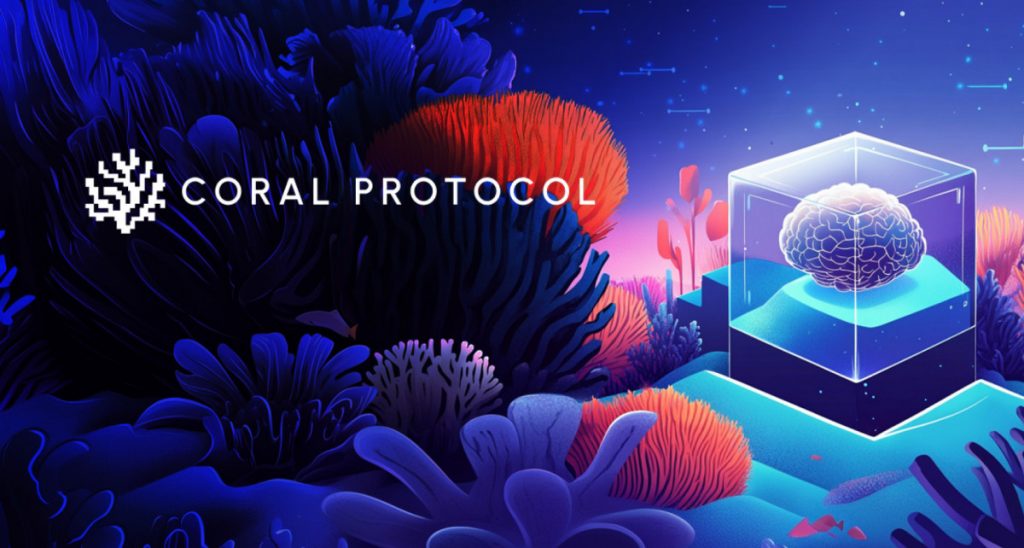Coral Protocol Outperforms Microsoft By 34% With Top GAIA Benchmark For AI Mini-Model


In Brief
Coral Protocol’s multi-agent system outperformed Microsoft-backed Magnetic-UI by 34% on the GAIA Benchmark, demonstrating that intelligent orchestration of smaller models can rival or surpass traditional large-scale AI approaches.

Decentralized infrastructure for collaborative AI, Coral Protocol reported that its multi-agent system outperformed Microsoft-supported Magnetic-UI by 34% on the GAIA Benchmark—an unprecedented result that suggests horizontal scaling may offer a more effective approach than expanding model parameters. The protocol’s system leverages intelligent orchestration across multiple agents, rather than focusing solely on increasing model size.
This performance marked the highest verified score on the GAIA Benchmark using mini agents, supporting NVIDIA’s premise that well-coordinated smaller models could play a key role in the future of AI. The outcome, according to Coral’s developers, reflects a conceptual shift in how AI scalability is approached rather than a pure increase in system power.
As an open protocol, Coral facilitates the expansion of AI capabilities by enabling coordination between specialized agents globally, instead of relying on centralized general models. Its architecture allows for parallel, secure interaction among agents, enhancing the functionality of language models of all sizes in tasks requiring advanced reasoning, planning, and problem-solving.
“This breakthrough marks a turning point in AI infrastructure,” said Coral CTO Caelum Forder in a written statement. “It’s proof that horizontal scaling isn’t just possible—it’s practical, and Coral is the most effective way to do it. The Internet of Agents is now a working reality. If you are an agent developer, just Coralise it. If you are an application developer, build it better for less using our infrastructure,” he added.
Coral Tops GAIA Benchmark, Validates Power Of Small Models In Advanced Agentic Systems
Amid increasing competition to develop advanced agentic systems, much of the focus has remained on scaling up models to manage growing task complexity. Coral’s recent performance challenges this prevailing approach, aligning with findings from a recent NVIDIA study suggesting that smaller systems can deliver high performance without compromising speed, security, or efficiency. The GAIA Benchmark, a comprehensive evaluation suite for advanced AI, is designed to assess how well systems handle real-world tasks that would typically demand substantial time and skill from human experts. Comprising 450 complex prompts that test research, analytical, and reasoning capabilities, the benchmark serves as a key industry metric for evaluating the effectiveness of general-purpose large language model (LLM) agents.
Coral’s GAIA Agent System, used in the benchmark test, is based on the Coral Protocol and draws from the design principles of CAMEL’s OWL. It incorporates specialized agents to carry out a range of tasks including research, analysis, critique, planning, and web navigation, all of which communicate through Coral’s MCP server infrastructure.
Leading the GAIA Benchmark rankings for smaller models indicates Coral’s potential to extend the functionality of AI systems via a graph-based structure. This result suggests that high-performing, lightweight agents can be created using smaller models—facilitating broader data handling, smoother ecosystem integration, and enhanced inter-agent communication.
“The role of small models in agentic systems has been undersold to date, but the tides are starting to turn,” said Caelum Forder. “We have proven that such models can scale beyond their previously known limits and outcompete the incumbents. I’m confident they have a central role to play in the future of agentic AI,” he concluded.
Disclaimer
In line with the Trust Project guidelines, please note that the information provided on this page is not intended to be and should not be interpreted as legal, tax, investment, financial, or any other form of advice. It is important to only invest what you can afford to lose and to seek independent financial advice if you have any doubts. For further information, we suggest referring to the terms and conditions as well as the help and support pages provided by the issuer or advertiser. MetaversePost is committed to accurate, unbiased reporting, but market conditions are subject to change without notice.
About The Author
Alisa, a dedicated journalist at the MPost, specializes in cryptocurrency, zero-knowledge proofs, investments, and the expansive realm of Web3. With a keen eye for emerging trends and technologies, she delivers comprehensive coverage to inform and engage readers in the ever-evolving landscape of digital finance.
More articles

Alisa, a dedicated journalist at the MPost, specializes in cryptocurrency, zero-knowledge proofs, investments, and the expansive realm of Web3. With a keen eye for emerging trends and technologies, she delivers comprehensive coverage to inform and engage readers in the ever-evolving landscape of digital finance.



















































